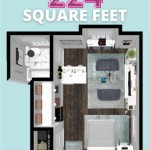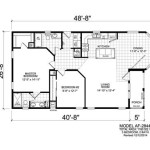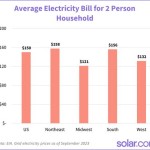1 Bedroom Apartments No Credit Check: Exploring Rental Options
Securing housing is often a fundamental necessity, but the traditional rental process presents challenges for individuals with limited or poor credit histories. Landlords commonly rely on credit checks to assess an applicant's reliability in meeting financial obligations. This can inadvertently create barriers for those seeking 1-bedroom apartments and who may have had previous financial difficulties, are new to the country, or simply haven't had the opportunity to establish a substantial credit record. Therefore, exploring alternatives to traditional rentals that circumvent the credit check requirement is a crucial pathway for many individuals.
The concept of "1 Bedroom Apartments No Credit Check" refers to rental properties where the landlord or property manager de-emphasizes or eliminates the credit check as a primary factor in the application process. This can manifest in a variety of forms, ranging from outright waiving the credit check to placing greater weight on other factors such as income verification, employment history, or a higher security deposit. The availability of these options varies significantly depending on geographic location, market conditions, and individual landlord policies.
It is important to understand that while the phrase "no credit check" suggests a complete absence of financial scrutiny, this is rarely the case. Landlords are ultimately seeking to mitigate risk and ensure they are renting to responsible tenants. Therefore, alternative screening methods are typically employed to assess an applicant's suitability. Understanding these alternative methods and how to prepare for them is crucial for those seeking to secure a 1-bedroom apartment without relying on a strong credit score.
Navigating the rental market without a credit check requires a proactive and informed approach. It often involves researching alternative rental options, preparing alternative documentation, and understanding the potential trade-offs involved. This article aims to provide a comprehensive overview of the landscape of 1-bedroom apartments that don't require credit checks, outlining the available options, alternative screening methods, and strategies for maximizing the chances of securing a suitable rental property.
Understanding the Need for Alternatives
The reliance on credit checks in the rental process disproportionately affects certain demographics. Young adults just starting their careers, individuals with limited credit history due to immigration or prior financial hardship, and those with medical debt or student loans may find themselves unfairly penalized by a low credit score. This can create significant barriers to accessing safe and affordable housing, perpetuating cycles of instability and limiting opportunities for upward mobility. The availability of "no credit check" options addresses this disparity by providing a pathway to housing based on factors other than solely creditworthiness.
Furthermore, even individuals with seemingly good credit scores may encounter unexpected challenges. Errors on credit reports, identity theft, or unforeseen financial circumstances can temporarily damage a credit score, making it difficult to secure a rental property through traditional means. "No credit check" alternatives offer a safety net in these situations, allowing individuals to demonstrate their ability to pay rent through alternative means.
The rise of the gig economy and freelance work has also contributed to the increasing demand for flexible rental options. Individuals with non-traditional income streams may find it difficult to meet the strict income requirements of traditional landlords, even if they possess a solid credit history. Landlords who are willing to consider alternative forms of income verification, such as bank statements or client contracts, can provide valuable housing opportunities for this growing segment of the workforce.
Finally, the increasing cost of living and the competitive rental market in many urban areas have made it increasingly difficult for individuals to find affordable housing, regardless of their credit history. "No credit check" options can sometimes offer more affordable rental rates or more flexible lease terms, making them an attractive option for those seeking to stretch their budget.
Exploring Different Types of "No Credit Check" Apartments
The term "no credit check" can be misleading, as landlords will typically employ alternative screening methods to assess the risk of renting to a particular applicant. Understanding the different types of "no credit check" apartments and their associated screening methods is crucial for navigating the rental market effectively.
Private Landlords: Renting directly from a private landlord often offers more flexibility than renting from a large property management company. Private landlords may be more willing to consider alternative documentation, such as proof of stable employment, bank statements, or letters of reference from previous landlords. They may also be more understanding of extenuating circumstances that may have negatively impacted an applicant's credit score. Building a rapport with a private landlord and demonstrating a genuine commitment to responsible tenancy can significantly increase the chances of securing a rental property.
Sublets and Roommates: Subletting an apartment or renting a room in a shared living arrangement can provide a viable alternative to traditional rentals. Subletters and roommates are often less concerned with credit scores and more focused on finding someone who is responsible, respectful, and compatible with their existing living situation. While subletting may involve different legal considerations, it can be a more accessible option for those with limited or poor credit.
Short-Term Rentals with Flexible Terms: Some short-term rental properties, such as those offered through online platforms, may not require a credit check. While these properties typically command higher rental rates, they can provide temporary housing while an individual works on improving their credit score or searches for a more permanent rental solution. The flexibility of short-term rentals can also be beneficial for individuals who are relocating for work or school and need temporary housing while they familiarize themselves with the area.
Apartments with Alternative Screening Processes: Some apartment complexes are beginning to adopt alternative screening processes that place less emphasis on credit scores and more emphasis on factors such as income verification, employment history, and criminal background checks. These complexes may use specialized tenant screening services that utilize alternative data sources to assess risk, such as rental history databases or social media activity. Exploring these types of apartments can provide a more equitable pathway to housing for individuals with limited or poor credit.
Co-signers and Guarantors: Employing the use of a co-signer or guarantor can also mitigate the impact of a poor credit score. A co-signer, typically a financially stable family member or friend, agrees to be responsible for the rent if the tenant defaults. The co-signer's credit history and financial stability provide assurance to the landlord, reducing the perceived risk of renting to the applicant. This option requires establishing trust and agreement with the co-signer, and should only be pursued if the tenant is confident in their ability to fulfill their rental obligations.
Key Strategies for Securing a "No Credit Check" Apartment
Securing a "no credit check" apartment requires a proactive and strategic approach. Preparing alternative documentation, building a strong case for tenancy, and being prepared to negotiate are essential for maximizing the chances of success.
Comprehensive Documentation: Gather as much documentation as possible to demonstrate financial stability and responsible tenancy. This may include pay stubs, bank statements, letters of employment, tax returns, and letters of reference from previous landlords. The more documentation that is provided, the stronger the case for tenancy becomes. Having these documents readily available demonstrates preparedness and a serious commitment to renting the property.
Highlighting Employment History and Income: Emphasize a consistent and stable employment history. Landlords prioritize applicants who can demonstrate a reliable source of income. If self-employed or working freelance, provide documentation of client contracts, invoices, and bank deposits to verify income. A strong employment history and verifiable income are crucial factors in mitigating concerns about creditworthiness.
Addressing Credit Concerns Proactively: If there are specific reasons for a low credit score, be prepared to explain them to the landlord. Providing context for past financial difficulties can demonstrate responsibility and a commitment to learning from past mistakes. For example, explaining a past medical emergency or a temporary period of unemployment can help the landlord understand the circumstances and assess the risk more fairly. Being transparent and honest can build trust and demonstrate integrity.
Offering a Higher Security Deposit: Offering a higher security deposit can provide additional financial assurance to the landlord. A larger security deposit reduces the risk of financial loss in the event of damage to the property or unpaid rent. This demonstrates commitment and willingness to invest in the rental agreement. It can also be a valuable negotiating tool, particularly when credit is a concern.
Building a Positive Relationship with the Landlord: Make a positive impression on the landlord from the outset. Be punctual for appointments, dress professionally, and communicate respectfully. Building a rapport with the landlord can significantly increase the chances of securing the rental property. Demonstrating responsibility, trustworthiness, and a genuine interest in the property can outweigh concerns about credit history. Follow up promptly with any requests for information and be responsive to communication.
Utilizing Online Rental Platforms Cautiously: While online rental platforms can expand the search for "no credit check" apartments, it's important to exercise caution and verify the legitimacy of listings. Be wary of listings that seem too good to be true or that require upfront fees without a physical viewing of the property. Always meet with the landlord or property manager in person before signing a lease or transferring any funds. Utilize online resources to research the landlord or property management company and check for any complaints or negative reviews.
Seeking Legal Advice: If encountering difficulty securing a "no credit check" apartment or suspecting discrimination based on credit history, consider seeking legal advice from a tenant rights organization or attorney. They can provide guidance on legal rights and options for recourse.
Securing a 1-bedroom apartment without a credit check requires diligence, preparation, and a strategic approach. By understanding the available options, preparing alternative documentation, and building a positive relationship with prospective landlords, individuals can increase their chances of finding suitable and affordable housing.

12 Tips To Rent An Apartment Without A Credit Check

No Over Lease Credit Check Spareroom

How To Land No Credit Check Apartments Renting Without Grow Blog

12 Tips To Rent An Apartment Without A Credit Check

Studio Furnished No Credit Check Apts Housing For Rent Apartment Craigslist

No Over Lease Credit Check Spareroom

Top 10 Best No Credit Check Apartments For Rent South Milwaee Wi Updated 2025 Yelp

Grand Rapids Apartments Housing For Rent No Credit Check Craigslist

How To Rent An Apartment With Bad Credit

No Credit Check Apartments Durham Tiktok








